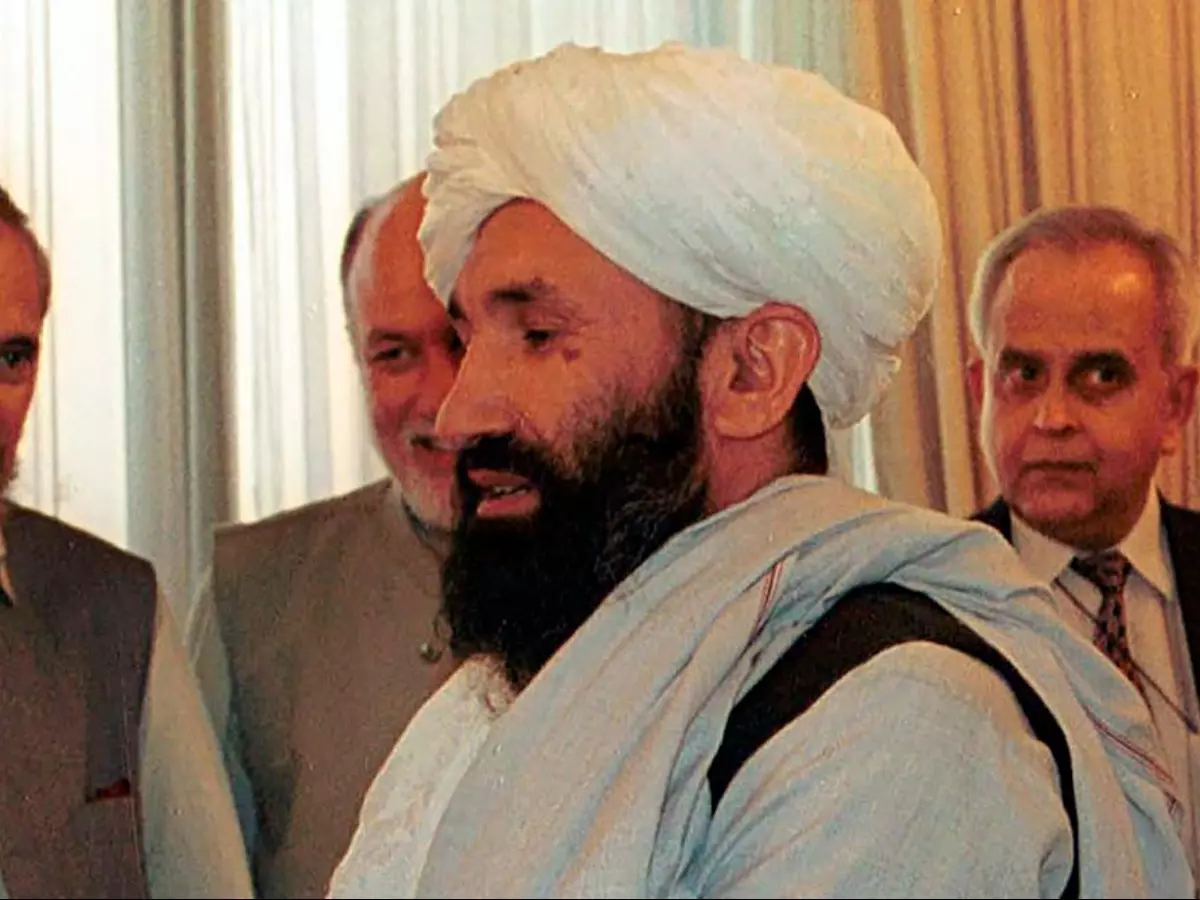Who Is Mullah Mohammad Hasan Akhund, The Ultra-Conservative Head Of Afghan's Interim Government
Mullah Hasan Akhund was a founding member of the Taliban and has since remained an influential figure in Afghanistan. Unlike other Taliban leaders, Mullah Akhund does not come from a mujahedeen background. Instead, he comes from a more religious background and had in the past served on the Taliban's shura councils.

Nearly a month after capturing power in Afghanistan and driving out the elected President Ashraf Ghani, the Taliban finally has a government, at least for the time being.
On Tuesday, the Taliban announced its interim government, which will be headed by Mullah Hasan Akhund as the interim prime minister.
The 33-member cabinet is all-male and consists mostly of the Taliban's old guard.
While announcing the Cabinet, Taliban spokesman Zabihullah Mujahid emphasized that the appointments were temporary. He did not say how long they would serve and what would be the catalyst for a change.
Who is Mullah Hasan Akhund?
Mullah Hasan Akhund was a founding member of the Taliban and has since remained an influential figure in Afghanistan.
 AFP
AFP
Unlike other Taliban leaders, Mullah Akhund does not come from a mujahedeen background. Instead, he comes from a more religious background and had in the past served on the Taliban's shura councils, the traditional decision-making body made up of religious scholars.
In fact, Mullah Akhund's ultra-conservative religious views were influential in what the world came to know as Taliban's views after the militia first took power in 1996.
Akhund views
Akhund's conservative beliefs include restrictions on women and the denial of civil rights for ethnic and religious minorities.
His edicts in the 1990s, adopted by the Taliban, included the banning of women's education, enforcing gender segregation and the adoption of strict religious garb.
He, like most Taliban leaders, is a follower of Deobandism, which originated in Deoband and has spread to countries like Pakistan and Afghanistan.
Buddhas of Bamiyan
Perhaps his most notorious act was ordering the destruction of the Buddhas of Bamiyan in 2001.
 AFP
AFP
According to Ali A Olomi, a historian of the Middle East and Islam at Penn State University, the then Taliban chief Mullah Mohammad Omar had no intention of destroying the statues.
But the Taliban founder was angered at seeing conservation money being made available for the UNESCO world heritage site while failing to secure humanitarian aid from the United Nations for Afghanistan. As such, Omar sought out the advice of his shura, and Akhund was part of the council that ordered the destruction of the sixth-century statues.
Previous posts held
In the previous Taliban government, Akhund held the post of foreign minister.
After the Taliban was ousted from Afghanistan in 2001, Akhund remained an influential presence, operating mostly from exile in Pakistan.
 AFP
AFP
From there he would give spiritual and religious guidance to the Taliban throughout the 2000s and 2010s. In this role, he provided the ideological justification for the ongoing insurgency against the United States and the U.S.-backed Afghan government.
Why Akhund?
The announcement of an interim government led by Mullah Akhund came as a surprise to many. That is because until now, it was said that Mullah Abdul Ghani Baradar will be the head of the new Afghan government.
 AFP
AFP
Senior Taliban leaders Mullah Mohammad Yaqoob, the son of late Taliban co-founder Mullah Omar, and Sher Mohammad Abbas Stanekzai were said to be getting top positions in the government.
While they were to run the government, Haibatullah Akhunzada, the Taliban's supreme religious leader, would focus on religious matters and governance within the framework of Islam.
But there had been reports of a power struggle within the ranks of the Taliban, between Mullah Baradar and the Haqqani network a powerful faction of the Taliban.
Sirajuddin Haqqani is the Deputy Amir of the Afghan Taliban and in rankings of the militia holds the third position after Hibatullah Akhundzada, who is considered as the Amir. He is an UN-designated terrorist.
 Reuters
Reuters
According to Olomi, Akhund seems to be a compromise candidate between supporters of Baradar and the Haqqani network. The delay in his appointment ¨C the Taliban repeatedly put off making an announcement ¨C could be an indicator of internal divisions in the Taliban.
When the announcement came, it was accompanied by news that Baradar would be his deputy.
Khalil Haqqani, Sirajuddin's uncle, was appointed as acting minister for refugees. Two other members of the Haqqani clan were also named to positions in the interim government,
Afghanistan under Akhund
After capturing power, the Taliban had promised to have an inclusive, progressive government in Afghanistan, which would respect the rights of women and religious minorities.
But if Akhund's previous track record is anything to go by, it is highly unlikely.
 AFP
AFP
Afghanistan's Ambassador and Permanent Representative to the UN Ghulam Isaczai termed the new government as ¡°anything but inclusive¡±.
"The people of Afghanistan, especially our youth who have only known a free and democratic Afghanistan, will not accept a governing structure that excludes women and minorities, eliminate constitutional rights for all and does not protect the gains of the past,¡± he said.
